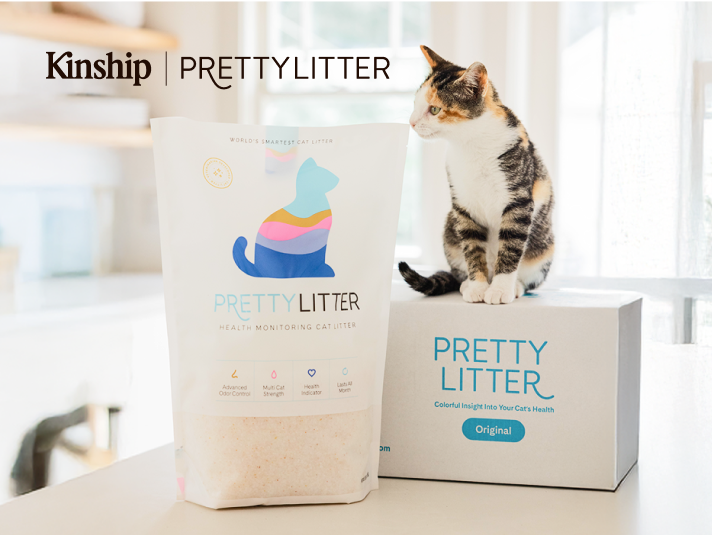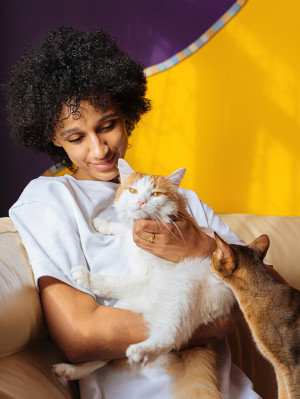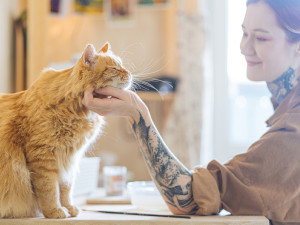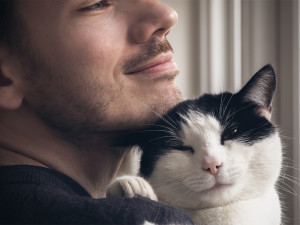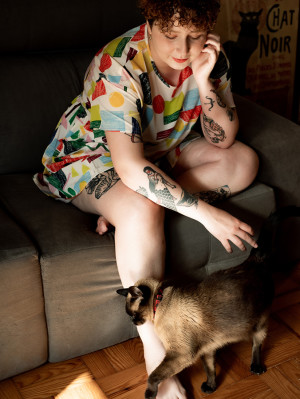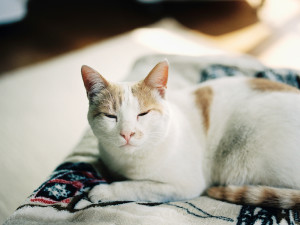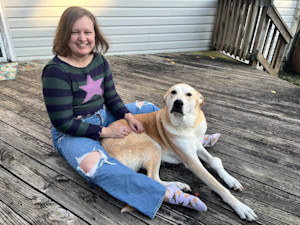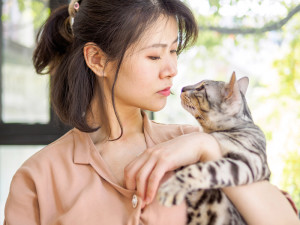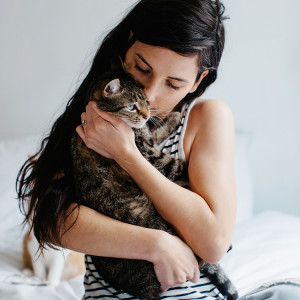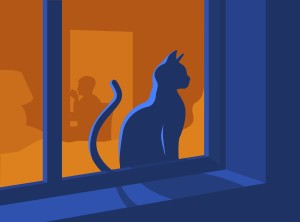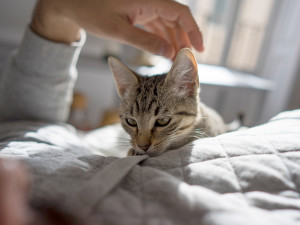You Might Be the Reason Your Cat Is So Moody, Study Finds
Good thing they can’t talk about you in therapy.
Do you ever look at your cat and think, “Why are you like that?!” Well, according to a peer-reviewed studyopens in new tab published in the open-access online journal PLOS ONE, the answer might be you. At least in part.
The study’s authors, Lauren Finka, Joanna Ward, Mark Farnworth, and Daniel Mills surveyed over 3,100 cat owners, searching for a link between a person’s personality and the behavior and wellbeing of their cats — and there definitely was one.
Save on the litter with color-changing tech that helps you better care for your cat.
The idea for the study came from looking at the relationship between human parents and their children (more proof that our pets are our kids). According to research cited in the study, 30 to 60 percent of human personality traits are inherited, which means 40 to 70 percent are the result of psychosocial factors, including the child-parent relationship. In fact, the child-parent relationship is probably the single most important factor in determining this remaining 40 to 70 percent, given how dependent a child is on their parents and how much time they spend with them relative to anyone else during their most formative years.
Kinship spoke to Finka about her research and what her and her fellow researchers’ findings means for cat parents. Before we dive in, don’t worry: You haven’t emotionally stunted your cat. Plus, even if they do talk about you to their friends, it’s all coming out in meows anyway.
How much do you spend on your pet per year?
Study Finds Cats Are Highly Sensitive to Their Parents’ Emotions
The study measured the “Big Five Inventory (BFI)” personality traits, aka “The Feline Five”: Agreeableness, Conscientiousness, Extroversion, Neuroticism, and Openness. Researchers also asked cat parents about their pets’ health, breeds, and normal behaviors.
The results showed that there is definitely a connection between cat parent personality and some aspects of cat behavior and emotional health. For example, humans with higher levels of “neuroticism” were more likely to parent cats with anxious or fearful tendencies, stress-related illnesses, and even ongoing medical conditions. Meanwhile, cat parents who scored high in the agreeableness category tended to report healthier cats with more friendly and open personalities.
“This study really highlights the potential ways we as owners might impact the behavior and well-being of cats and the important role our personalities might play in relation to this,” Finka says. “Our findings closely mirror those identified within parent-child relationships, suggesting that, just like children, cats are very sensitive to and influenced by the ways we care for and interact with them.”
Researchers noted that correlation doesn’t automatically guarantee causation, but it’s still a good idea for cat parents to be aware of how their own emotional states can affect their cats, especially when it comes to potential health concerns.
Give your cat plenty of physical and emotional space.
Cats are incredibly attuned to human behavior and emotion. If you’re feeling stressed about an upcoming deadline at work or angry with a friend or partner, your cat may even mirror those same feelings back to you.
While solidarity is always great, your negative emotions may have an impact on your cat’s overall health, potentially causing them to be more anxious and aloof or can even lead to medical issues, such as lethargy, appetite loss, or vomiting.
But, Finka says, while your cat can be impacted by your personality and emotions, it’s not a guarantee. “Many people struggle with poor mental health, and research suggests that cats can be a large source of comfort in this regard,” Finka says. “So, it’s important that we don’t start worrying that just because we are feeling anxious or depressed, that will ‘rub off’ onto our cats. Similarly, just because we are happy and in a good mood doesn’t automatically mean that our cats will be, too.”
Finka encourages cat parents to be more aware of how they interact with their cats and try not to put too much social pressure on them. Pay attention to your cat’s emotions, especially when they indicate that they don’t want to be cuddled or touched and would rather be left alone. After all, we as humans generally need some solitary time to recharge, and cats are no different. Providing your cat with a quiet place where they can retreat from the social life of the home (and yes, even from you) can help improve their emotional state.
Respect your cat’s autonomy and their needs.
As a cat parent, it’s important to know how your own behavior could be affecting your beloved pet — and what you can do to improve your cat’s health and wellbeing.
“Some cats may appear ‘independent’ or ‘standoffish’ simply because they have different preferences for social contact with people,” Finka says. “However, this does not mean that such cats are not still affected by the ways we behave around them, and we should aim to always be mindful of how our behavior and lifestyles might be impacting our cats.”
Whether you adopted your cat as a tiny kitten or you brought them home from a shelter as a senior, it’s important as a cat parent to understand your cat’s personality and preferences. Just as humans all have different ways of interacting with each other, your cat may prefer a certain type of attention or even little to no attention at all. Know how and where your cat likes to receive pets and give them as much space as possible so that they can feel comfortable in the home and in your family.

